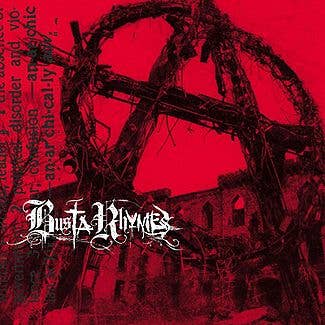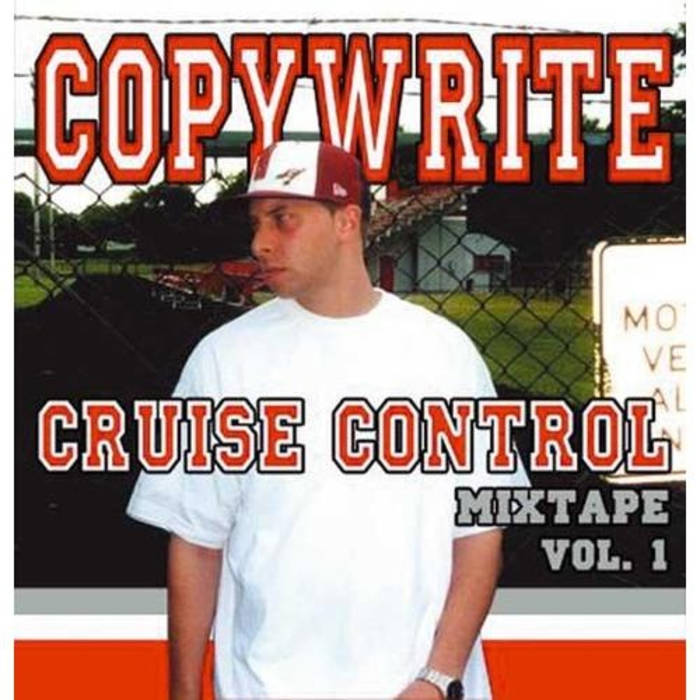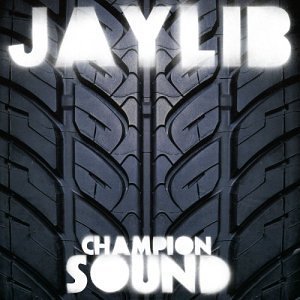The turn of the millennium found Dilla stressed out. Six years into a vibrant career, he had more headaches than money. Industry politics were taking their toll, from sample-clearance issues to shady record label cats proving that Tribe’s “Industry Rule number 4080” was right on the money. The second Slum Village album, Fantastic Vol. 2, was a creative triumph but generated much internal friction. While waiting for the first album to drop, Yancey’s old friends had been seeing less of him than before and Baatin had turned to hustling to pay his bills. Meanwhile Jay Dee was growing frustrated in his struggle to keep them focused on his increasingly experimental creative vision. To top it all off, every time he drove his truck down the street, Detroit police pulled him over, convinced that a young brother with fresh wardrobe had to be up to illegal activity.
He found relief by focusing on underground projects, connecting with old friends like Phat Kat—whose devastating Dedication to the Suckers EP released a whole lot of frustration. Flexing his own rhyme skills, Yancey decided to put himself forward as an artist. He signed an artist deal with MCA Records, with plans to release an album titled Pay Jay. Featuring production by the likes of Pete Rock, Kanye West, and Hi Tek, it was a strong piece of work. But internal staff changes led to the record being shelved. “You know, if I had a choice...skip the major labels and just put it out yourself, man,” Dilla vented in one interview. “Trust me. I tell everybody it's better to do it yourself and let the indies come after you instead of going their way and getting a deal and you have to wait. It ain't fun. Take it from me. Right now, I'm on MCA, but it feels like I'm an unsigned artist still. It's cool. It's a blessing, but damn I'm like, 'When's my shit gonna come out? I'm ready now, what's up?'”
With his MCA project stuck in a rut, a different album would become Dilla’s solo debut. Welcome 2 Detroit was originally slated to be a breakbeat album, but the British indie label BBE—whose name was inspired by the Universal Robot Band's 1982 track “Barely Breaking Even—told him to do whatever he wanted. Dilla responded by turning in a masterpiece, which was released under a new moniker—Jay Dee a.k.a. J Dilla. Because it featured more of his own production than Pay Jay, Welcome 2 Detroit has aged better, emerging as the superior of the two projects (and no doubt completed for a fraction of the cost). Dilla pushed the boundaries even further on his 2003 album, Ruff Draft, which contained experiments in ambient production and tracks with abstract vocals that were more like hypnotic chants than traditional raps.
After touring Europe on the strength of the album, he returned home to find his own strength failing him. What was once thought to be a case of exhaustion didn’t get better no matter how much rest he got. His parents insisted that he check into the hospital, where he was diagnosed with thrombotic thrombocytopenic purpura (TTP), a rare and very serious blood disorder. The illness may have slowed his output, but health concerns could not prevent him from making music. A longtime admirer of Madlib—the brilliant DJ, producer, and MC from Oxnard, Calif.—Dilla got word that Madlib had been recording unauthorized tracks based on Dilla beat CDs. Dilla decided to confront him—not on some cease-and-desist shit, but more to say, “If you’re going to do this, let’s make it official.” Their brilliant collaborative project, Champion Sound, marked an artistic high point in both artists’ catalogs, and further cemented Dilla’s reputation as one of the most innovative creative forces in the rap game.
EARLY DILLA SINGLES

(1999-2001)
Shaking off his Soulquarians loverman steez, Dilla was ready for a change of pace. You can sense his excitement to link with his old friend Phat Kat to cook up a heatrock. Dilla goes HAM on the scratches over a hard-bangin’ beat that DJ Premier might have concocted but with a touch more depth and dimension. Dilla was always at the top of his game when rocking with Busta Rhymes. For the millennial Anarchy album, they pushed the envelope with a “Stereolab” sample on “Show Me What You Got,” then picked up the pace with the adrenaline-pumper“Live It Up.” Busta came right back to Dilla for the title track to his Genesis album the following year and Dilla served him up an Italian prog-rock banger, sampling Acqua Fragile’s “Cosmic Mind Affair” because he knew Busta could handle it.
J DILLA, 'PAY JAY'

(2001)
Skills or no skills, it’s never easy for a dope producer to escape from that seat behind the boards and get a chance to rock the mic—just ask Kanye West. Three years before The College Dropout Dilla signed a deal with MCA Records to drop a solo album as a rapper. The album featured production by Pete Rock, Hi Tek, even Yeezy. Due to personnel changes at the labelPay Jay was shelved and didn’t come out for another eight years. The one track that featured his own production was this ode to 4x4s, built around a slice of Gary Numan’s electro-pop hit “Cars.” The sample-based record was a precursor to Dilla’s electro phase and also revealed the Motor City MC’s genuine love of rolling through his city in his customized “Dillalade.” (Real talk.)
JAY DEE A.K.A. J DILLA, ‘WELCOME 2 DETROIT’

(2001)
Coming on the heels of Slum Village’s long-awaited Fantastic Vol. 2, Welcome 2 Detroit was originally intended to be a souped-up beat tape, launching the BBE label’s “Beat Generation” series. Tracks like “Rico Suave Bossa Nova” and “African Rhythms”—in which ancient hand percussion evolves into modern breakbeats—are neither bare instrumentals nor fully realized songs. But when the label told Dilla to do whatever he wanted, the project became something more. “The Clapper” is an East Detroit twist on an old late-night TV commercial: “Clap on, clap off / Never take your motherfuckin’ strap off.” The same street logic applies to “Give It Up” wherein Dilla warns industry herbs to respect the jux. Then there’s “Think Twice” a lazy, hazy blunted Sunday morning mood piece with muted trumpets and soft live drums recorded using a broken drumstick with toilet paper and rubber bands. “It looked like putting a marshmallow at the end of a toothpick,”Questlove recalled with a laugh before proceeded to copy the technique on the next Roots album.
JAY DEE A.K.A. J DILLA, “F*CK THE POLICE”

(2001)
Even with a disclaimer about not “condoning or encouraging” violence, it took balls to release a song with this title one week after 9/11—especially one with a verse that begins “We could lose a few, we got enough of em.” Floating atop a funky flute sample and rock-hard drums, Dilla vented a lifetime’s worth of frustrations. “That song was totally true,” said his mother, Maureen Yancey, a.k.a. Ma Dukes. “He caught so much flack from the police for being a clean young man. The police department was down the street from where we lived, and every time he pulled off they’d stop him and harass him.” One night he came home so frustrated he was “hurt to tears” so she advised him to channel his anger. “‘Look, this is what you do—you go downstairs and make a song about it, and you laugh in their face.’ And that’s when he came up with the ‘“F” the Police’ thing. And people are still singing it today!”
J DILLA, ‘RUFF DRAFT’ EP

‘RUFF’ SINGLES

(2003-2005)
During his European tour for Ruff Draft, Dilla met Afrob and Samy Deluxe, two black rappers from Germany who formed a group called ASD. He hooked them up with some serious heatfor their album Wer Hätte Das Gedacht? (who’d have thought it?). It’s a good bet that the only part he understood was where they say, “Bow wow wow yippy yo yippy yay,” but he clearly felt their energy as they did his. The following year, he found a fresh approach to flipping Zapp’s “More Bounce to the Ounce” for his former Slum Village bandmates on “Do You.” Keeping it underground, he laced Cleveland’s own Copywrite with some spacy choir sounds on “That’s a Wrap” for his Cruise Control Mixtape Vol. 1 and provided Weathermen member Moka Only with a sparse banger for his Dirty Jazz LP that became “Franks and Beans” (no shots at Dank!).
JAYLIB, ‘CHAMPION SOUND’

(2003)
“I hooked up with Madlib ’cause I love his work,” Dilla explained in the 2003 Dustbusters interview. Having heard hisLootpack project, Dilla flew him out in hopes of working with the MC/DJ/producer on the MCA album. Later on he learned that Madlib had been recording demos over his beat tapes so they decided to join forces officially, sending tracks back and forth from Detroit to Oxnard, Calif., until the project was ready to drop on Stones Thrown Records. “It was all straight mixtape shit,” said Dilla. “Everything you hear is straight two-tracks and overdubs.” The title track featured a Fuzzy Jones sample long before G.O.O.D. Music’s “Mercy.” On “The Red” a clean hissing high-hat counters a distorted bass that hits with physical force—because it’s been pushed so far into “the red.” Frank-N-Dank jump in with Dilla over a Madlib beat for “McNasty Filth”—a strip club soundtrack that would clear out Magic City.
